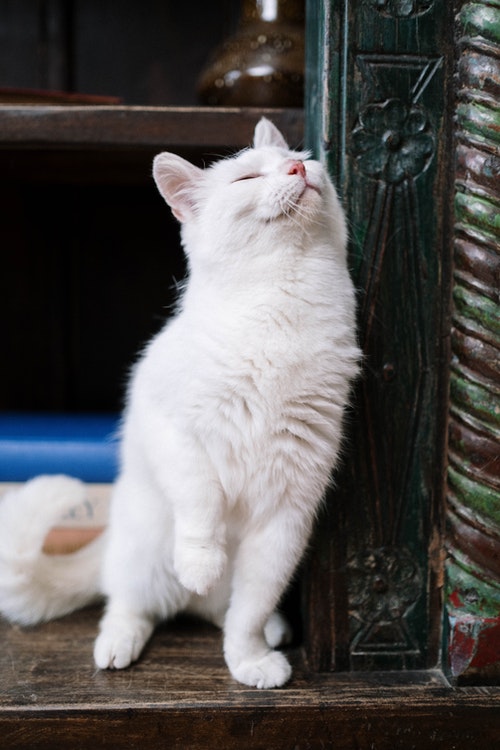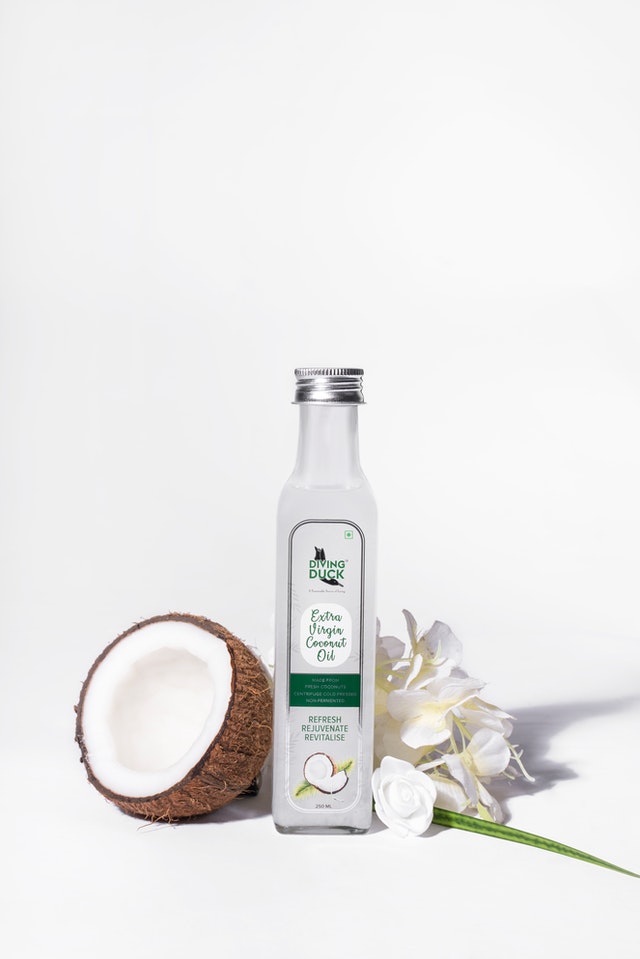Cat skin problems home remedies usually consist of natural ingredients, they are simple to use and have a wide variety to try.
The best method to examine disorders is to brush your cat while moving your hand against the grain carefully, so that you may check dermatitis or irritation.

Reasons for cat skin problems
-
Food allergies
-
Environmental allergies
-
Dehydration
-
Fleas and ticks
-
Ringworm
-
Lack of nutrients
-
Excessive grooming
Allergies
Allergies are considered one of the most known reasons for cat skin disorders. But, the challenge is detecting the allergens affecting your cat. Veterinarians will examine cats to detect the cause of lesions.
There are numerous known cat allergies (in addition to flea allergies) pet owners should be aware of, including:
Food allergies
Cats can experience food allergies. Some of the symptoms include:
-
Frequent ear infections
-
Interdigital dermatitis (inflammation between the toes)
-
Itching, wheezing, sneezing, and coughing
-
Pimples and rashes
-
Pulling out hair/hair loss (alopecia)
-
Recurrent diarrhea or vomiting
-
Red or inflamed patches of skin
-
Rubbing or persistent scratching
Diet free from fillers, chemicals, artificial colors or preservatives maintain good health for your cat
Foods accompanied by allergic reactions such as wheat and yeast, dairy products, soy, beef, poultry, and fish, among others.
To determine which food types to avoid, an elimination diet (supplying one sort of food at a time and observing your kitty’s reaction) may be a course of action worth exploring.
One of the easiest ways to ensure he’s free of pollen, mold spores, or other environmental debris is to wipe your cat down with a clean, damp towel every time he returns to the house.
Cats are also sensitive to yeast infections in the ears, feline yeast infections are usually related to underlying skin problems.
If you observe any symptoms, such as severe itching, foul odor, flaking of the skin, head shaking, or discharge, a trip to your veterinarian is recommended.

Types of cat skin problems home remedies
Oatmeal
Treat itchy cat skin, so it is considered as cat skin problems home remedies. Oatmeal has a high protein and fat content when compared to other cereal grains.
The high protein content is easily digested and utilized by your cat's body, and it also obtains a healthy balance of amino acids.
How to use oatmeal?
Mix grounded oatmeal into a warm bath and pour the fluid over their body slowly by a cup.
You can soak a cat in an oatmeal bath. You can apply a small amount of the oats straight to any affected regions.
After oatmeal massage into your cat's skin and let it soak for 10 minutes, wash it with warm water. This creates a protective barrier on your cat's skin, which retains moisture.
Also, you can supply your cat’s diet with oatmeal. But, this is preferred as a cat treat rather than a whole meal.

Essential oils
Coconut oil
Useful for cats' itchy skin. As it has an excellent moisturizer property for dry, flaking skin. So it is considered a good cat skin problems home remedies.
It has antibacterial, antiviral, and antifungal qualities that help soothe and cure injured skin because of its rich lauric acid content
Olive oil
Considered as one of the effective cat skin problems home remedies for ear edge dermatitis, as it consists of healthy fats, as polyunsaturated fatty acids, which preserve skin healthy, soft, and appropriately moisturized.
Vegetable oil
-
Soaked in a cotton swab
-
prevent the accumulation of wax and grime.
Omega 3 fatty acid
Supplement of omega 3 fatty acid or oil, like flaxseed oil or fish oil, will be beneficial for cats.
Apple cider vinegar
Treatment of fleas and ticks, cat skin scabs with apple cider vinegar won't kill the fleas. But, it will force them to leap off your cat's body. So it is considered a good cat skin problems home remedies.
Plain yogurt
Unsweetened, unflavored yogurt is beneficial as cat skin problems home remedies.
For quick, cooling comfort, gently apply to the affected area. Add a few tablespoons once a week to their meals if your cat isn’t allergic.
Plain yoghurt contains helpful bacteria that facilitate digestion, and improve your cat's immune system, so aid it battles any skin allergies or infections it may have.
Lemon
Lemons have citric acid, which is a powerful cat skin problems home remedies as it treats cat skin infections naturally, like fleas.
Fill a spray bottle halfway with diluted lemon juice and spray your cat on affected regions. Work it gently into their fur and be careful to avoid its eyes.
Omega 3 & 6 oil
It is considered as one of cat skin problems home remedies as it helps in keeping their skin moist, cats with dry skin and dandruff can benefit from a full combination of omega 3 & 6 oil in their meal. It's easy to preserve their coat allergen-free by grooming regularly.
Chamomile tea
For soothing raw, irritated skin: An excellent cat skin problems home remedy, chamomile tea has been used because of its medicinal and antiseptic properties.
Killing yeast and bacteria causes lesions and skin abrasions, this plant-based tea calms minor skin irritations. Brewing a strong pot of tea and chilling it in the refrigerator to prepare a soothing solution for your cat.
After complete chilling, pour it into a spray bottle and spray on the affected areas for cooling relief.

How to avoid cat skin problems?
Cat skin problems may be avoided by regularly taking your cat to the doctor and observing its cleanliness.
A well-balanced diet is the best cat skin problems home remedies as it perseveres healthy skin from the inside.
Regular vitamins supplements into their diet also maintain their good health.
Conclusion
It’s necessary to perform routine observations of your cat’s coat and skin, including his fur, claws, the padding on his feet, and skin inside the ears. Identify and treat any minor skin affections.
Read more about:
Causes And Treatments Of Cat UTI
Home Remedies For Ear Mites In Cats


You must be logged in to post a comment.